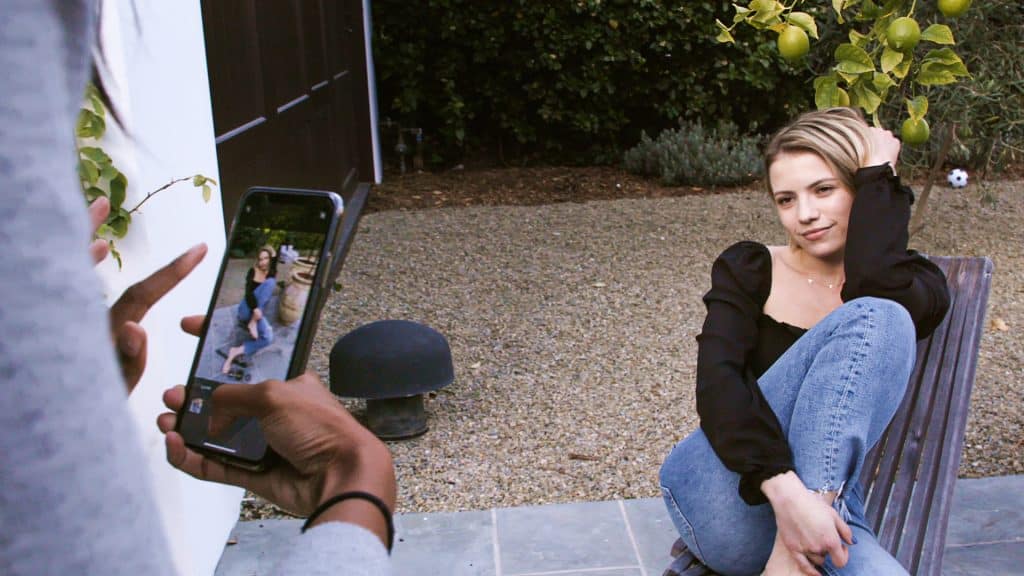Read also:
How to Watch FX Live Without CableHow To Watch AMC Without CableHow to Watch ABC Without CableHow to Watch Paramount Network Without CableNick Bilton’s documentary-slash-zoomer ethnography investigates whether you can game your way to social media fame.
Young millennials and xennials appear in slow motion, one after another, in front of a bright pink wall—tossing their heads back in faux laughter, leaping into the air, resting hands on their hips—all to capture the perfect pic for the ‘gram. Narration lets us know that all these people snapping all these pics in front of the perfect Pepto-Bismol pink wall have made it one of the single most popular tourist attractions in Los Angeles. That’s right. A wall. Not a wall like the Great Wall of China or the Berlin Wall, but the wall of a Paul Smith, a boutique that sells $700 blazers and $150 T-shirts.
It’s the perfect opening for Fake Famous’s peek inside the world of influencers. It’s directed and narrated by former New York Times technology reporter, Nick Bilton. For nearly 20 years, Bilton has been knee-deep in the ever-changing world of tech. (Remember that ban of cell phones and Kindles that used to exist on airplanes? Yeah, you can thank Bilton for getting rid of that.) But in Fake Famous, he doesn’t want to just examine influencers, he wants to create one.
Following in the footsteps of films like Super Size Me far more than Bloody Nose, Empty Pockets, Bilton is explicit about the experiment he wants to conduct. Can you buy your way to influencer-dom? Can you influence your way to fame?

He starts by putting out a casting call that asks simply, “Do you want to be famous?” More than 4,000 people respond. We see dancers, roller-skaters, musicians, and a lot of model/actresses. But Bilton is committed to something like purity in this experiment. Rather than choose anyone who might find success with an audience because of their talent, he goes for what seem like the three unlikeliest candidates: Dominique, your seemingly run-of-the-mill actress looking for success; Chris, a stylish young man who claims to “deserve fame”; and Wylie, a young gay kid from Atlanta who doesn’t appear to have any idea why he wants to be famous at all.
The choices end up being absolutely perfect for examining the range of people who might be suckered into the influencer lifestyle. And yet Bilton is careful to never make them appear foolish for wanting it. What sets Fake Famous apart is Bilton’s journalistic eye for context. The collection of talking heads he chooses to fill in interviews are absolutely spot on and include not just other influencers (like Liz Eswein, who runs the famous @newyorkcity Instagram account), but the marketers that hire these influencers and even Justine Bateman, whose memoir Fame provides more insight into the celebrity these kids are after and what its detrimental effects can be.
In fact, it’s Bateman who acknowledges the truth about influencers we so often ignore. This “profession” was not created in a vacuum and it was not created by the young people on social media themselves. “As media expanded and needed more and more material for its 24-hours of entertainment, it opened a lot more avenues for fame,” says Bateman. And that’s the truth Bilton is getting at, too.
There was a hole in the media landscape to be filled, an opportunity to squeeze money out of an untapped resource. And as a person who works on the creative side of marketing, I can tell you it’s a lot cheaper to purchase advertising packages from YouTubers and Instagram stars than it is A-list celebrities and the effect it has can be enormous. (There is literally no other reason why I know who MrBeast is other than his work for my day job is invaluable.)
What sets Fake Famous apart is Bilton’s journalistic eye for context.
Watching all the gritty behind-the-scenes work of becoming ‘grammable is as bizarrely fascinating as one of those viral pimple-popping videos. At one point, to create the perfect “spa pic”, Dominique poses with her head in an old plastic kiddie pool. The final product, a shot of her serenely lying amid a floating bouquet of red and white rose petals, is flawless. You’d never know it was shot in a piece of garbage in a random backyard.
This is the artifice Fake Famous sheds light on. It’s so incredibly easy to fake these glamorous shots. It’s so easy to believe them when we have no real reason to assume we shouldn’t. Bilton even dives into the process of buying bots, which is far easier and more affordable than you’d think.
But he never forgets the cost of all this, the toll it takes on your life whether it’s the hours spent planning photo shoots and coordinating outfits and editing pics or the emotional strain of being scrutinized by friends and strangers alike, the constant judgement. Fake Famous manages to show not just who isn’t cut out for it, but why—what parts of themselves people aren’t willing to part with for the likes.
At the end of the day, the film does get a little overly hand-wringy in that way so many adults can be when talking about kids and technology, but that’s it’s only real fault. It’s largely the most insightful look at influencers and an excellent primer on who they are and why they exist at all. The answer isn’t quite as simple as you think, and that’s exactly why this is a must-watch.
Fake Famous premieres on HBO tonight at 10p Eastern/9p Central.